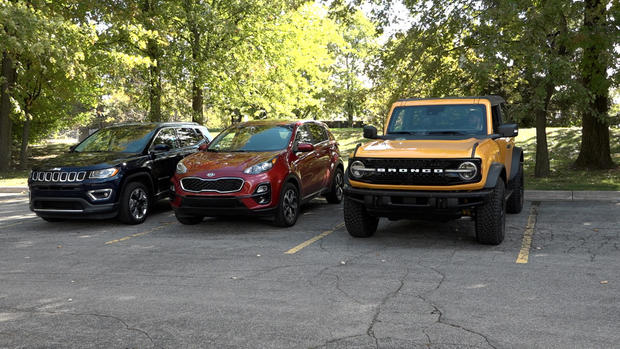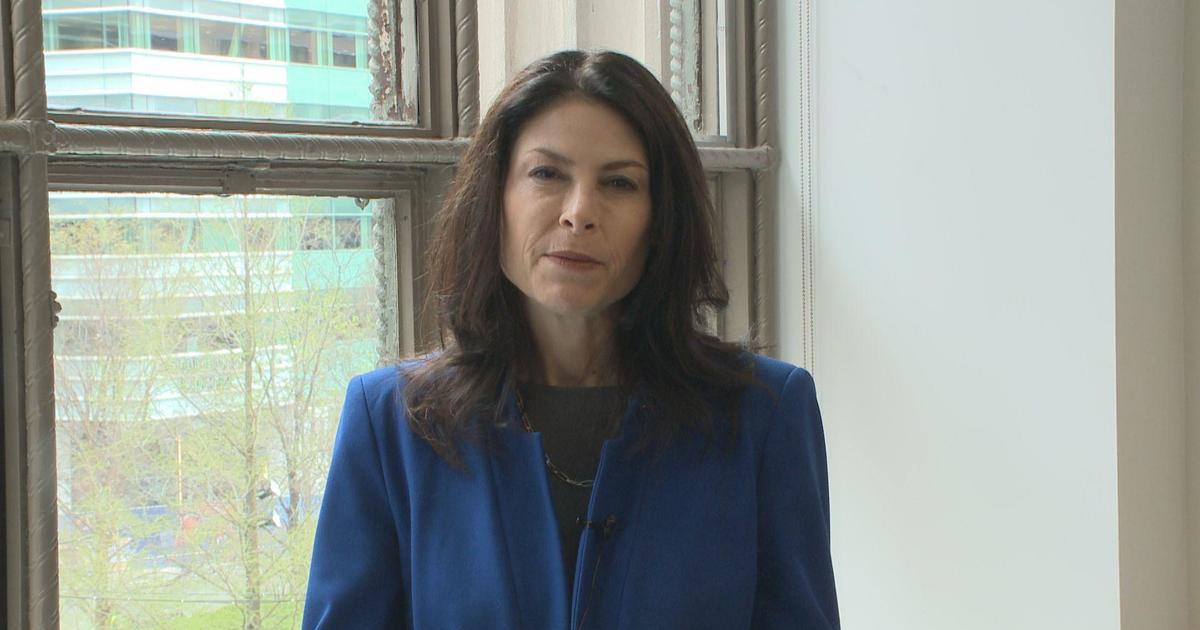Michigan lawmakers want regulations on car sharing industry
(CBS DETROIT) Michigan lawmakers want to set some rules around a growing industry within the transportation sector.
"Peer-To-Peer Car Sharing" lets people rent out their cars through an app, and it's usually less expensive than a traditional rental company.
But some feel that proposed legislation will increase costs.
Each week a dozen or so people get into one of Lavell Riddle's cars that he rents out on the "Turo" app.
"During the week, it's usually ranging from 60 to about $75. On a weekend, around $75 to up to $100, depending on the season," Riddle told CBS Detroit.
Lavell saw a need during the pandemic while driving for Uber and Lyft.
"A vehicle for 24 hours would be the same about the same amount as a one-way trip," Riddle said.
He now has six vehicles on the Turo network, primarily SUVs and mid-sized sedans.
"We don't operate on huge margins like a rental car company does," Riddle said.
But there's a series of House Bills: 4917, 6375 and 6376 making their way through the state capitol that places regulations on this emerging industry.
"They've been kind of operating in the gray area for last couple of years," State Representative Pat Outman from District 70 told CBS Detroit. "And so we want to be able to kind of set up the framework to allow them to thrive."
One of the bills, HB 6376, seeks to impose taxes on peer-to-peer car-sharing platforms similar to the ones traditional car rental companies pay.
"It would just punish Michigan citizens who share their cars," Lou Bertuca, Vice President of Government Relations at Turo, said.
GetAround, another peer-to-peer car sharing company, sent CBS Detroit this statement:
"Getaround supports laws that allow communities to safely and confidently enjoy the benefits of peer-to-peer carsharing, which enables access to cars for people who need them to live or work. Together with other bills under consideration, HB 6375 and HB 6376 would take Michigan in the wrong direction by treating carsharing like traditional car rental even though they are very different. These bills could effectively double tax car owners who share their cars and open the door for more taxes and regulations that could raise transportation costs and stymie the state's growing carsharing industry."
But lawmakers say an individual who has already paid sales tax on their car and rents it out wouldn't be subject to another tax. If they have a fleet of vehicles, it's a whole different story.
"The only side where there is any additional tax that is charged is to an LLC, and they're only being asked to pay the use tax that is already paid by every other car rental company," State Rep Kevin Hertel from District 18 said during last week's Regulatory Reform committee meeting.
One of those companies, Enterprise, supports the proposed legislation. A company spokesperson, Lisa Martini, shared this statement:
"The proposed legislation is an agreed upon set of standards for an emerging segment of the car rental industry, bringing clarity to taxation rules by restating existing tax laws that have been in Michigan for decades. The legislation reflects model legislation that took years to create and received substantial input from stakeholders, including but not limited to: the property and casualty insurance industry, auto manufacturers, consumer and auto safety advocates, along with car rental, car sharing, and peer-to-peer car rental companies. We support these bills that protect consumers, because they ultimately result in what is good for car rental customers, car owners and Michigan residents. This includes rental car safety and transparency laws that protect the public well-being and enable customers to make informed choices, regardless of who owns the car."
Opponents believe it curbs the platforms' full potential.
"It's really hard to let these guys innovate and let all these different new companies innovate and figure out this really new great idea if from day one, we're beating them down with red tape and new taxes and fees," Ben Rajadurai with Americans For Tax Reform said.
Local governments would still have to put the proposed tax on a ballot if it does become law and ultimately let voters decide.
"We still pay taxes on all income and everything else. So I just would hope they would think about us," Riddle said.





